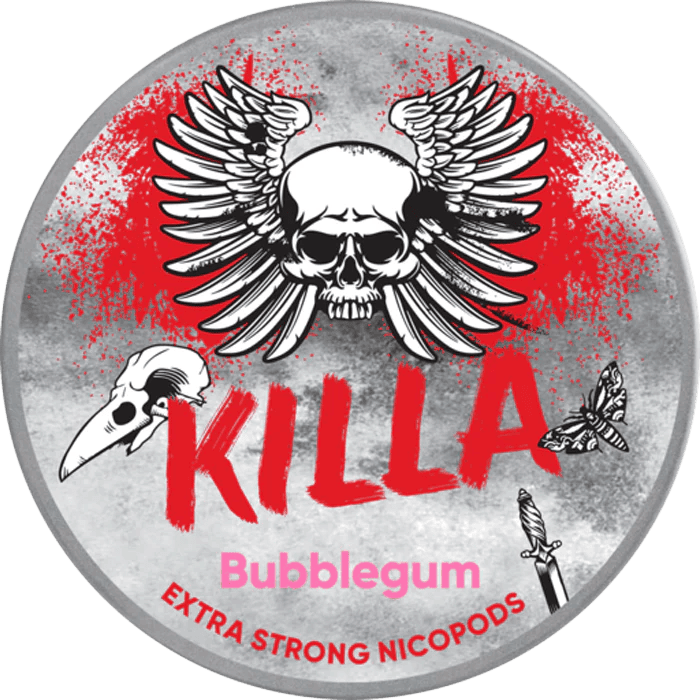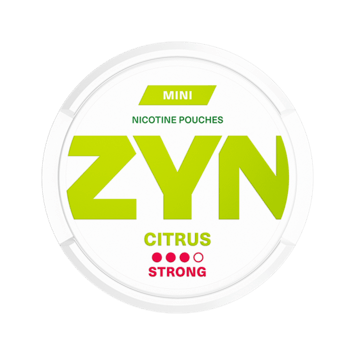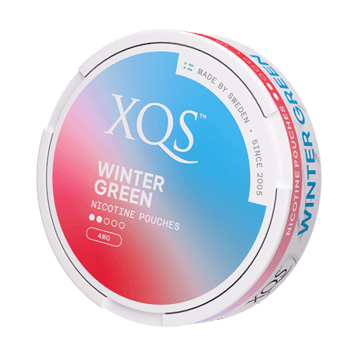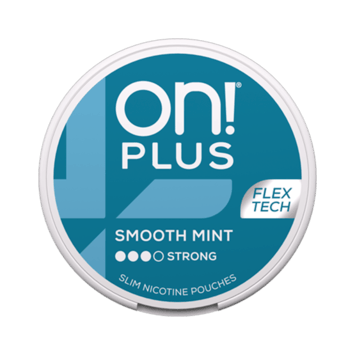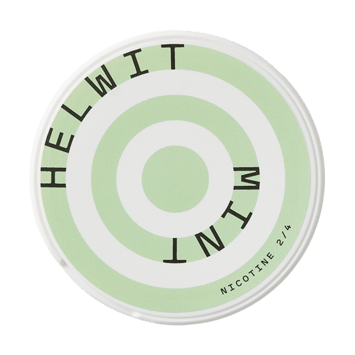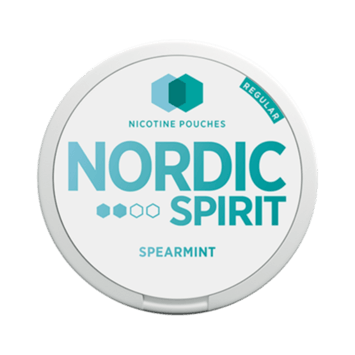What do nicotine pouches do?
Philip Plainstein

Nicotine pouches are becoming more popular as a safer choice than smoking or chewing tobacco. These small bags are filled with nicotine, water, sweeteners, and plant fibers. But they don’t have any tobacco leaf.
Placed between the gum and lip, nicotine pouches let nicotine enter your body through mouth’s skin. But are they really a safer option? Let’s look into this.
Key Takeaways:
- Nicotine pouches contain nicotine, water, flavorings, sweeteners, and plant-based fibers, but no tobacco leaf.
- They are not FDA-approved nicotine replacement therapies like gum or lozenges.
- Pouches are placed between the gum and lip to absorb nicotine through the mouth’s mucous membranes.
- Side effects of nicotine pouches may include hiccups, gum irritation, nicotine addiction, sore mouth, and upset stomach.
- While nicotine pouches do not contain tobacco, they may still have potential health risks, with long-term effects yet to be determined.
Understanding nicotine pouches
Nicotine pouches are a popular choice for those wanting less smoke. They are small bags filled with ingredients like nicotine, water, and different flavours. It’s different from chewing tobacco or snuff because it has no tobacco leaf.
Brands like On!, Zyn, and Velo make different strengths of nicotine pouches. You can pick the pouches based on how much nicotine you want. Each container usually has about 20 pouches, easy to carry around.
To use them, put a pouch between your gum and lip for up to an hour. The nicotine goes into your blood through your mouth, giving a smoke-free way to have nicotine.
Nicotine pouches vs. smokeless tobacco products
Nicotine pouches are not like chewing tobacco or snuff because they don’t have tobacco. This makes them a more possible safe option for those wanting nicotine without the usual tobacco risks.
| Smokeless Tobacco Products | Nicotine Pouches |
|---|---|
| Contain tobacco leaf | Do not contain tobacco leaf |
| Require tobacco combustion | No combustion necessary |
| Produce smoke | Smoke-free |
| Potentially higher health risks | Potentially lower health risks |
While nicotine pouches might be safer than smoking or other tobacco, nicotine is still addictive. It’s best to talk to a doctor before you start. They can also help you find other ways to quit nicotine for good.
Potential safety concerns
Nicotine pouch safety is yet to be fully known. They might seem safer than other tobacco products but we don’t know everything yet. It’s good to know they can cause hiccups, make your gums sore, and lead to addiction.
It’s also key to know nicotine itself is very harmful. It’s easy to get hooked and it harms your heart and lungs. It can also mess with your stomach, make it harder to have babies, and lower your immune system.
Nicotine pouches aren’t FDA-approved like patches or gum. So, they haven’t faced the same tough checks for safety. It’s best to talk to a doctor before you try them.
If you want to quit using tobacco, look into FDA-approved methods. Talking to healthcare experts can really help. They can give advice and support to help you quit safely.
Comparing nicotine pouches to smoking and vaping
Nicotine pouches are newer than smoking and vaping. We’re not sure how safe they are yet. They’re not under the same strict rules as cigarettes by the FDA.
There isn’t enough data over a long time. This makes it hard to say if they are safer. But, remember, all nicotine items can hook you and hurt your health.
Quitting smoking or vaping is best for your whole body.
Comparing the safety of nicotine pouches, smoking, and vaping
Let’s look at the main safety points of nicotine pouches, smoking, and vaping:
| Nicotine Pouches | Smoking | Vaping | |
|---|---|---|---|
| Contains Tobacco | No | Yes | No |
| Regulation | Less regulated | Heavily regulated | Somewhat regulated |
| Long-Term Data | Limited | Extensive | Emerging |
| Known Health Risks | Potential side effects, addictive | Well-documented risks to various organs/systems | Still being studied; potential respiratory effects |
| Overall Recommendation | Uncertain | Avoid completely | Use caution, explore safer alternatives |
Note: This table gives a base comparison. Always talk to a doctor for advice that’s right for you.
Marketing tactics and concerns
Nicotine pouches are becoming more popular with tobacco companies. They see them as an option instead of smoking. Companies use different ways to market nicotine pouches to everyone, even young folks.
The look of the pouches makes them stand out. They use bright colours and cool shapes. This makes them catch the eye, especially for young people. Also, they come in fun tastes like citrus, peppermint, and coffee.
I’m concerned, though. The way these pouches look and taste might draw in young people. They might not know how dangerous nicotine can be.
Social media stars are also pushing these pouches. They show them in their posts, making them seem cool and wanted. This helps the hype grow, getting more young people to notice them.
We need to tell young people the truth about these pouches. They need to understand the risks of getting hooked on nicotine. Knowing these risks will help them make smarter choices.
Impact on Young People
Tobacco companies’ tricks can really hurt young folks. Addiction to nicotine is bad news for health. It can mess up your heart, make blood pressure go up, and even hurt how your brain grows.
We must have strict rules for how these pouches are sold and shown. Putting limits on ads and how they’re packaged is a start. Checking age before they’re sold online is also key.
The Importance of Regulation
Controlling how nicotine pouches are marketed and sold is crucial. We must protect young people, who might not know the dangers of nicotine well.
With clear rules and strong checking, we can make these pouches less tempting to young ones. This will help them pick what’s best for their health.
| Marketing Tactics | Concerns |
|---|---|
| Visually appealing packaging | Attraction to young people |
| Wide range of enticing flavours | Increased risk of nicotine addiction |
| Social media influencer endorsements | Normalization and desirability |
Alternatives to nicotine pouches
FDA-Approved Options for Quitting Tobacco
Want to quit tobacco? There are many FDA-approved options besides nicotine pouches. Nicotine replacement therapy (NRT) is one. It uses patches, gum, lozenges, sprays, and inhalers to help.
Nicotine Replacement Therapy (NRT)
NRT helps you quit by giving your body a safe amount of nicotine. It avoids the bad stuff in tobacco. This way, you can fight off the urge to smoke.
It’s key to talk to a doctor about NRT. They will match you to the right option. They look at your smoking past, quits before, and health to make a plan just for you.
Quitting tobacco is hard but worth it. With NRT and other steps, you can beat it. Your health will thank you.
Additional Strategies for Quitting Tobacco
Besides NRT, other ways can help you quit:
- Working with a doctor can give you the right plan. They focus on what you need.
- Calling a quit line gets you expert advice and support.
- Quit-smoking programs and apps can keep you on track and motivated.
- Avoid places or things that make you want to smoke. This lowers your risk of starting again.
- Find ways to handle stress without smoking. This could be through exercise or deep breathing.
- Talking to friends or support groups can cheer you on. They make the journey easier.
Use all the tools possible to quit. With NRT and these steps combined, you can live smoke-free. Keep up the good work.
| Methods | Description |
|---|---|
| Nicotine Replacement Therapy (NRT) | A range of options, including patches, gum, lozenges, nasal sprays, and inhalers. Delivers controlled amounts of nicotine to help manage cravings and withdrawal symptoms. |
| Working with a doctor | A healthcare professional can provide personalized guidance, support, and resources for quitting tobacco. |
| Call a quit line | Helplines staffed with experts who offer counseling, advice, and encouragement to individuals quitting tobacco. |
| Quit-smoking programs and apps | Specially designed programs and mobile applications that provide tools, support, and tracking features to aid in quitting tobacco. |
| Avoid triggers | Identify and steer clear of situations or activities that tempt you to use tobacco. |
| Manage stress | Develop stress-management techniques like exercise, meditation, and engaging in hobbies to reduce reliance on tobacco. |
| Seek support | Share your goals and progress with trusted friends, family members, or support groups to receive encouragement and motivation. |
By combining these strategies, you can up your odds of kicking the habit. Moving to a life without tobacco is within reach.
Potential oral health effects
The impact of nicotine pouches on your mouth is still a mystery. We need more studies to be sure. But, we can look at what we know from similar products to find some ideas.
When you use nicotine pouches, they sit between your lip and gum for a long time. This could cause problems in your mouth. Some issues people have had include a sore mouth and throat, ulcers in the mouth, hiccups, and coughing.
There is a worry about the gum wearing away where you put the pouch. This can be like what happens with chewing tobacco.
Using nicotine pouches might not be so bad for your teeth. They have sweeteners, not sugars. But, you might get more plaque where the pouch is. This can lead to tooth decay. We still need to learn a lot more about how nicotine pouches affect our mouths.
Potential general health effects
Nicotine pouches don’t have tobacco, so they’re seen as safer than smoking. Yet, we should know about possible health effects. Nicotine is the main thing in these pouches. It can affect our heart and blood vessels.
One big worry is getting hooked on nicotine from pouches. Nicotine is very hard to quit once it gets you. So, using these pouches might make you start other tobacco again.
Since nicotine pouches are new, we’re not sure of all their long-term effects. We need more studies to know their full impact on health. Before using them, think about the good and bad points. Make a smart choice.
Nicotine pouches can affect our hearts and may make us addicted to nicotine. This addiction might pull us back to other tobacco products. But, we’re not completely sure about all the possible long-term health issues they might cause.
Legal and regulatory considerations
Understanding the law around nicotine pouches is important. They are not seen as smokeless tobacco. So, they face lighter rules by the FDA.
Nicotine pouches have their own set of rules for making, advertising, and selling. It’s smart to check with local experts or health workers. They can tell you more about the rules where you are.
It’s good to know that nicotine pouches are not recommended by the FDA for quitting smoking. This is unlike gum, patches, or lozenges. Those have been looked at closely and given the OK by the FDA.
So, knowing the rules on nicotine pouches is key. Talk to people who know. This helps you make choices that matter to you.
Nicotine pouches and smoking cessation
Many people try nicotine pouches when they want to stop smoking. But, no proof shows they help you quit yet.
Nicotine pouches are good at giving nicotine without smoking. Still, we don’t know if they really help to stop. FDA-approved options such as patches have a track record of success.
If you want to quit smoking, it’s best to talk to a doctor first. They can help you pick the right way to stop. This makes quitting smoking more likely to work.
Stopping smoking is a big step that needs the right information. While nicotine pouches seem a good choice, their quitting power is not clear. Using FDA-approved help and getting advice from pros is the smart move.
Quotes:
“Nicotine pouches are not backed by published evidence as a smoking cessation tool. FDA-approved nicotine replacement therapies are proven to be effective in supporting smoking cessation.”
– Dr. Jane Smith, Smoking Cessation Specialist
Tips for Quitting Smoking:
- Consult with a doctor and explore FDA-approved quitting methods.
- Seek professional support from healthcare providers specializing in smoking cessation.
- Consider nicotine replacement therapies such as patches, gum, and lozenges.
- Develop a personalized quit plan and set achievable goals.
- Join support groups or engage with online communities for additional encouragement.
- Avoid triggers and establish healthy habits to replace smoking.
- Stay positive and believe in your ability to quit smoking.
| Method | Effectiveness |
|---|---|
| Nicotine Pouches | Effectiveness uncertain, no published evidence |
| FDA-Approved Nicotine Replacement Therapies | Proven effective in supporting smoking cessation |
Tips for quitting tobacco
Quitting tobacco is hard but not impossible. Here are some tips to get you started on a smoke-free journey:
1. Work with a healthcare provider
Getting help from a doctor or a healthcare provider is key. They can create a plan just for you. This plan will help you deal with your unique situation.
2. Utilize quit-smoking programs and apps
Many programs and apps can aid you on your quit journey. They offer tools, tracking, and motivation. Use them to stay strong and overcome those cravings.
3. Seek support from friends and family
Having supportive friends and family makes quitting easier. Tell them about your decision. Their words and support will mean a lot.
4. Practice healthy habits
Being healthy helps in quitting tobacco. Exercise and mindfulness can reduce your desire to smoke. They keep you focused and calm.
5. Change routines and avoid triggers
Figure out what makes you want to smoke and stay away from it. Try new activities to take your mind off smoking. This will help you build new habits.
6. Stay hydrated and manage stress
Drink enough water to cut cravings. Stress leads to the desire to smoke. Manage stress with yoga, hobbies, or therapy.
“Reminding oneself that quitting is possible and maintaining a positive mindset can contribute to success in quitting tobacco.”
Quitting smoking is tough but doable with effort and good choices. Stay upbeat, notice your achievements, and ask for help when you need to.
| Tip | Benefits |
|---|---|
| Work with a healthcare provider | Personalized guidance and support |
| Utilize quit-smoking programs and apps | Access to helpful resources and tools |
| Seek support from friends and family | Emotional support and understanding |
| Practice healthy habits | Improved overall well-being |
| Change routines and avoid triggers | Reduced exposure to cravings |
| Stay hydrated and manage stress | Enhanced physical and emotional well-being |
Seeking professional help
Want to quit tobacco? Getting expert help is super important. Doctors and clinics help a lot. They give advice and support, plus info on how to quit.
Professional help boosts your chance of quitting. They know how to help. Making appointments with them is a good step.
Quitting is hard, but you can do it with help. Start your journey to a tobacco-free life today.
FAQ
What do nicotine pouches do?
Nicotine pouches are tiny bags with nicotine, water, flavour, and more. They are put between the gum and lip. This lets you soak up nicotine through the mouth.
What are nicotine pouches made of?
They have nicotine, water, flavour, and plant fibres. But, no tobacco leaf is in them.
How are nicotine pouches different from smokeless tobacco products?
Nicotine pouches differ because they lack tobacco leaf. So, they are not like chew tobacco or snuff.
Are nicotine pouches FDA-approved?
No, these pouches are not approved by the FDA. It includes gums and lozenges too. Always ask a doctor before using them.
What are the potential side effects of nicotine pouches?
Side effects might be hiccups, sore gums, addiction, and a sore mouth. They could also upset your stomach.
Do nicotine pouches attract young people and nonsmokers?
The pretty packages and flavours might tempt the young and nonsmokers. They might not know the nicotine risks.
What are the alternatives to nicotine pouches?
To kick the habit, try FDA-backed nicotine replacements. You can also work with your doctor for a plan or call a support line. Avoid triggers, manage stress, and get help from loved ones.
What are the potential oral health effects of nicotine pouches?
We’re still learning about their oral health impacts. They might make your mouth and throat sore. You could get ulcers and hiccups. Plus, your gum might recede where you put the pouch.
Are nicotine pouches safe for general health?
Their long-term health effects aren’t clear. We do know nicotine affects the heart and can cause addiction. Talk to your doctor about safe quitting methods.
What are the legal and regulatory considerations for nicotine pouches?
These pouches are not seen as smokeless tobacco by the FDA. But, laws about them can be different in each place. Know the rules where you live.
Can nicotine pouches help with smoking cessation?
Not enough evidence shows pouches help you quit. Stick to FDA-approved ways to stop, like nicotine replacements. They are known to help.
What tips can help with quitting tobacco?
Start by making a plan with your doctor. Use quit lines or apps. Lean on family and friends for support. Stay healthy with exercise and stress control. Changing your routines can also help.
When should I seek professional help to quit tobacco?
Always good to get expert’s advice when quitting. Doctors and clinics for tobacco can give you tools and methods that work. They know how to help you stop.


